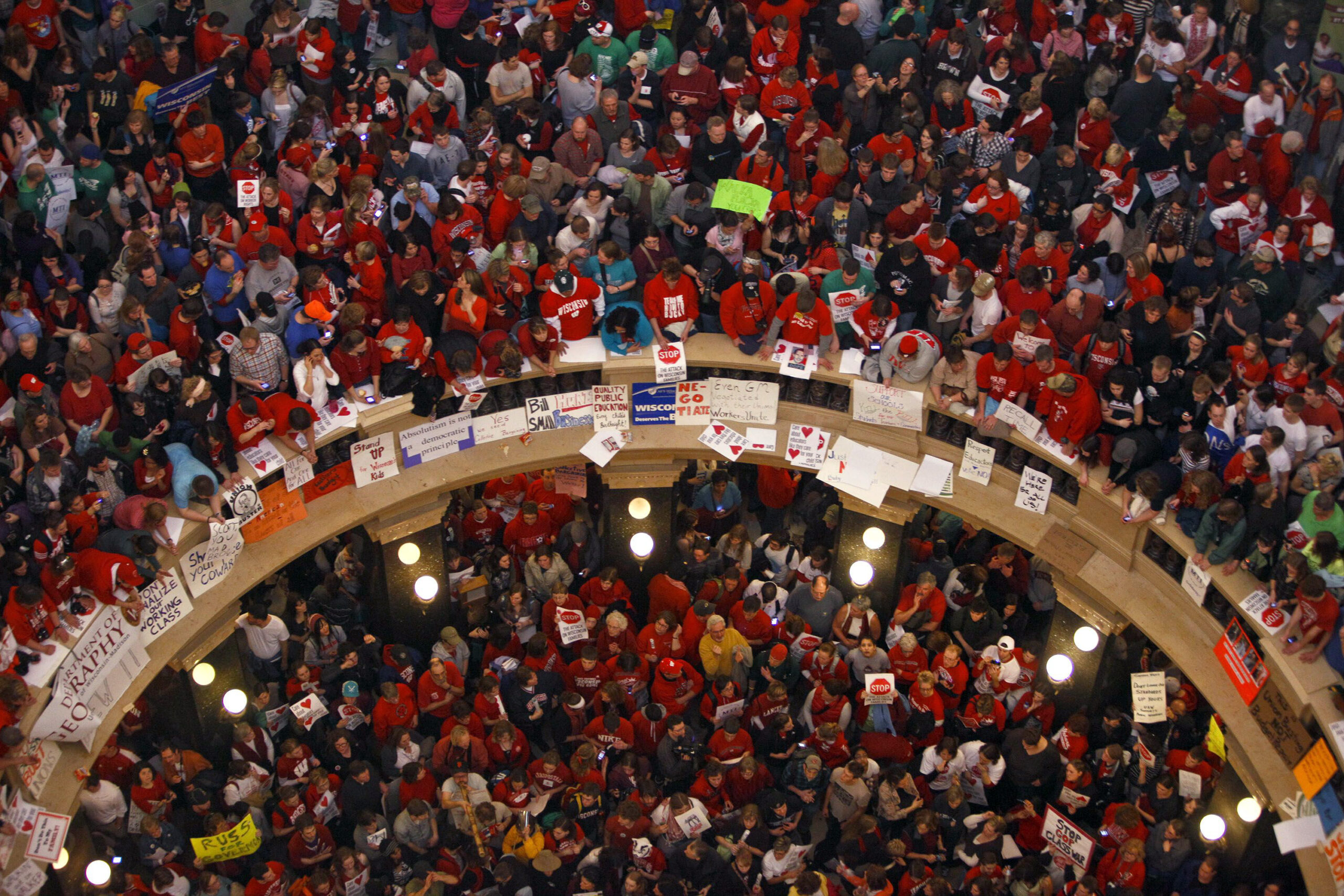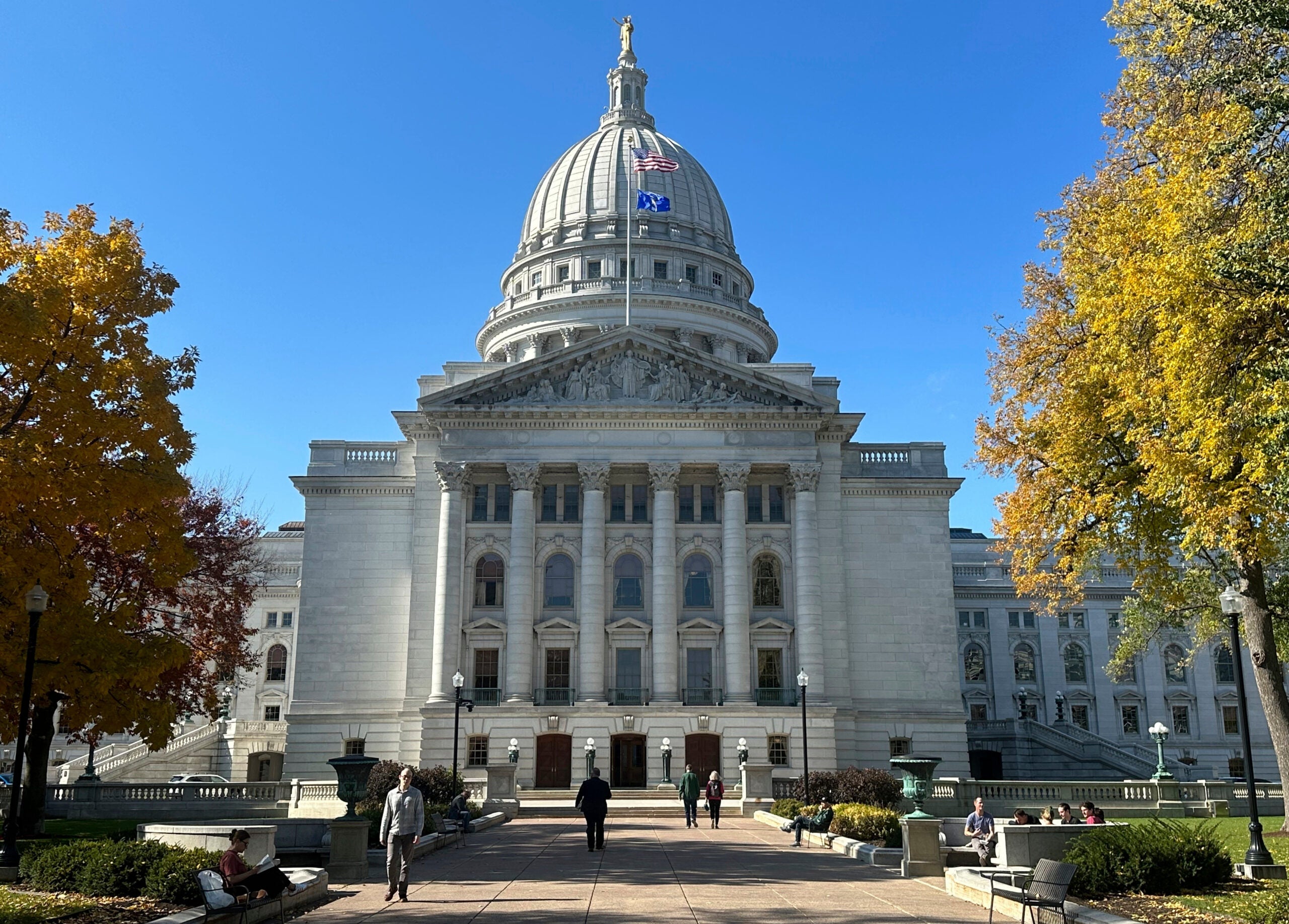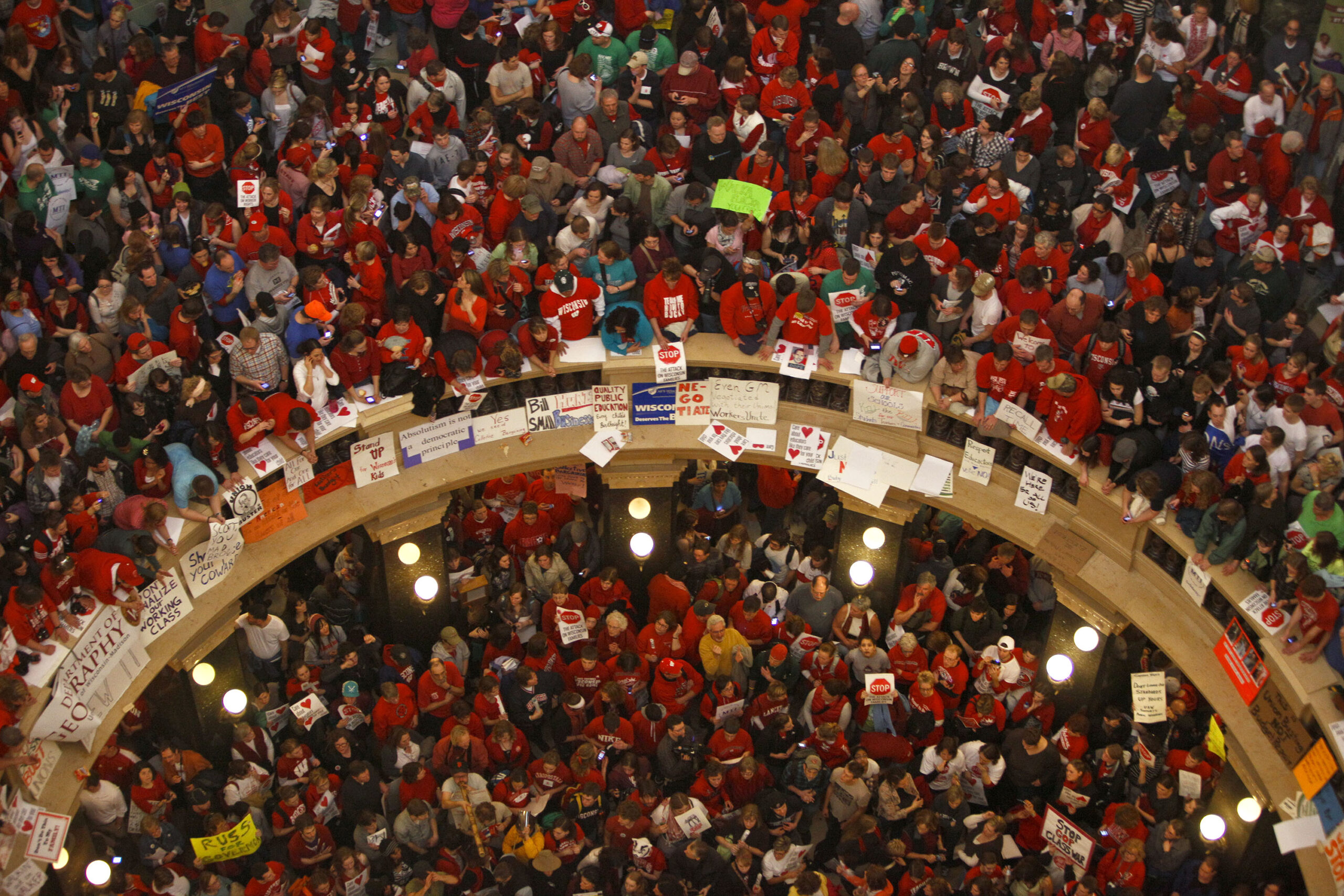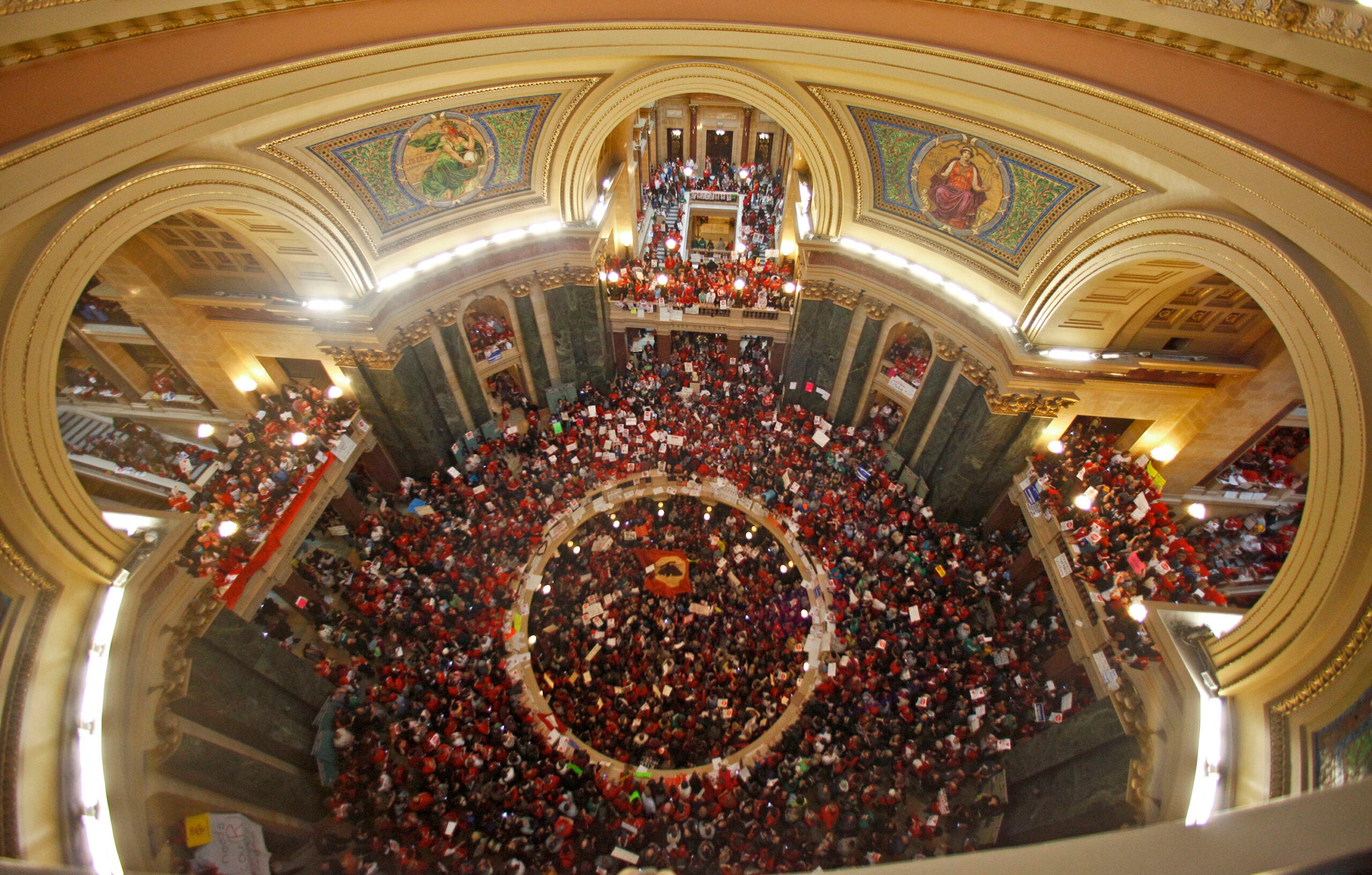A Dane County judge who declared a Republican law restricting public employee collective bargaining rights unconstitutional has put his ruling on hold. That means the controversial law known as Act 10 is still in effect as the GOP-controlled state Legislature appeals the order.
Dane County Circuit Court Judge Jacob Frost placed a temporary stay on his ruling from earlier this month that found Act 10 violates the Wisconsin Constitution’s promise of equal protection. He said that’s because the law restricts collective bargaining rights for some public employees but not others, even though they work in similar types of jobs.
Frost is considering whether to extend his stay while the Legislature appeals his ruling.
News with a little more humanity
WPR’s “Wisconsin Today” newsletter keeps you connected to the state you love without feeling overwhelmed. No paywall. No agenda. No corporate filter.
Act 10 dates back to 2011, when former Republican Gov. Scott Walker signed the law amid massive protests at the state Capitol in Madison. While the law applies to unions representing teachers and other workers, unions representing most police and firefighters were spared.
Frost’s ruling striking down the law was issued Dec. 2. Days later, a Madison-based teachers union demanded new contract negotiations.
Bryna Godar is a staff attorney with the State Democracy Research Initiative at the University of Wisconsin-Madison. She said a decision from Frost on whether he will extend the hold on his ruling could come within the next month or two.
“The other option is that the parties, or the Legislature in this case, could ask the court of appeals to stay the lower court’s decision as well,” Godar said. “And then, any decision on a stay could ultimately be appealed to the Wisconsin Supreme Court.”
The lawsuit that spurred Frost’s ruling was filed more than a year ago by a group of public employee unions affected by Act 10. The Legislature has already filed an appeal with the state’s appellate court system, but Godar said it’s possible one of the parties in the case petitions to bring the case directly to the state’s highest court.
“I think this case will almost definitely end up in the Wisconsin Supreme Court,” Godar said. “It’s just a question of whether it goes there sooner or later, and the petition for bypass is what would influence that.”
In 2014, the state Supreme Court’s former conservative majority sided with Republicans and upheld Act 10, stating that public sector collective bargaining is “a creation of legislative grace and not constitutional obligation.” The court currently has a a 4-3 liberal majority.
Wisconsin Public Radio, © Copyright 2025, Board of Regents of the University of Wisconsin System and Wisconsin Educational Communications Board.







